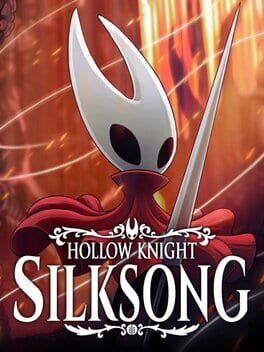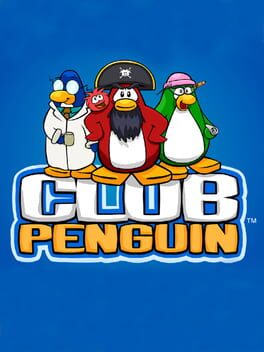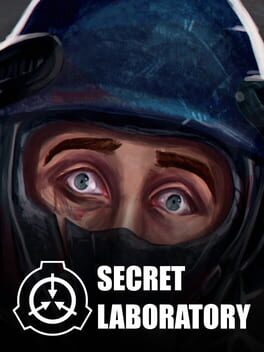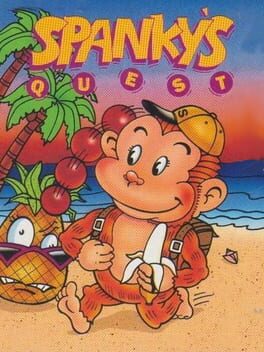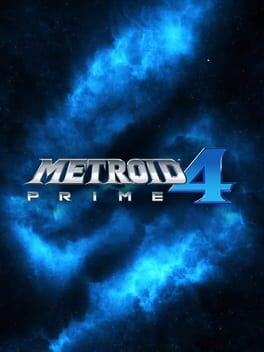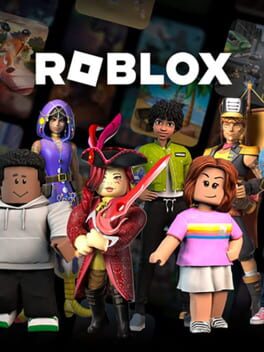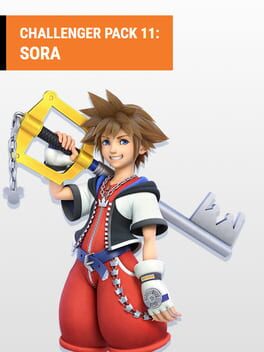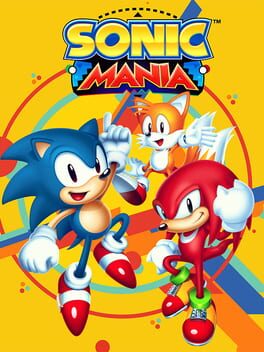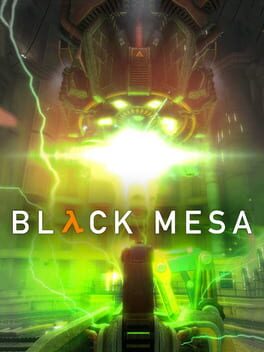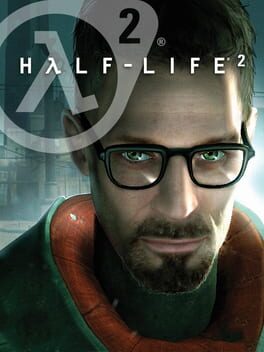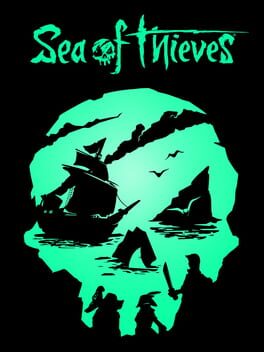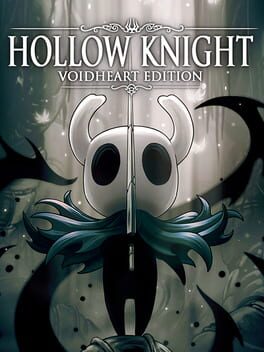Your_ResidentGuy
2021
The launch of the switch was a renaissance period for Nintendo. After an era hard-carried by second-party developers and delivering games for huge franchises that didn't really live up to the legacy of those big names, the Switch delivered a ton of first-party games that could be and would be argued as the best games in their respective franchises. Zelda got BOTW (lets be real, it's a Switch game); Mario got Odyssey, a game which stood out against the recent slog of the stale "New" moniker and allowed 3D World some much-needed breathing room and retrospection; and Smash got Ultimate, which gave everybody their hopes and dreams. Three Houses, New Horizons, Luigi's Mansion 3: For those first 3 years of the Switch, Nintendo was on fire; many most respected franchises finally got out of this strange rut as the lineup continued to grow. By 2020, things started to slow down. New Horizons had a promising start but a lack of substatinal updates sort of killed the game despite it's massive early success, and Ultimate's poor online and lack of substantial fighter buffs or nerfs killed the competetive scene. However, over the summer, we got that one glorious trailer, that one time where every fucking star aligned, that light at the end of a somewhat disappointing couples years for Nintendo and gaming overall.
Finally, Metroid gets her renaissance.
What a good game dude. Oh my god. comparable to Super for me. After no news on Prime 4 and a long, painful dark age for the franchise, MercurySteam has effectively resurrected the franchise, building off of what they learned in Samus Returns and improving on it's flaws.
In response to Samus Returns, Areas are larger, backtracking is more well-paced, and 100 percenting it is really fun. Sequence breaks—although I didn't actually try them yet myself—are not only possible but deliberate. (Though I wish there were more sequence-breaking secrets aside from Kraid.) The counter is more natural, controls are much better without the touchscreen, I like how missle types are straight upgrades rather than individual missiles. Enemy, boss, and area variety is vastly improved. There are repeated bossfights, but it's not to the cartoonish degree that Samus Returns took things.
The boss fights in particular are fantastic, it gets that nice balance of frustration with the first few encounters and confidence after learning their patterns. Dread is also well-designed in tandem with Samus' toolkit. For the most part each power-up is useful to a certain extent. Even when they're replaced by a better upgrade—like the Gray Suit or the Space jump—you'll have already spent plenty of time with most of the upgrades so they don't feel like wasted tools. Samus herself controls very well and for once my hands don't cramp up when I play a Metroid game. Just the right speed, just the right jump, just the right movement control.
The item puzzles and exploration are really engaging, just as fun and rewarding as the combat. The game will automatically tell you if there is a hidden powerup in the vicinity which helps with backtracking, as well as the very detailed map which tells you which items you've already obtained. Some of the Shinespark puzzles are a bit too obtuse for my tastes, but overall it's a game that always leads you on the right direction. EMMIs are a really neat side-concept that ups the intensity. Dread is short, but Metroid games should be short. I think it's that perfect length where you don't get exhausted of it.
Graphically the game is no slouch either—There's plenty of atmosphere to go around. I love all the detail put into the little animations and interactions. The backgrounds are nice, the lighting is great, the character design and art direction is vastly improved over SR. Sound design is also a lot better. The Pulse Scan is way less obnoxious, thank the fucking lord. I don't want tinnitus every time I want to find a hidden fucking block.
I really like how Mercury was able to bring Samus to life without her speaking any comprehensible language. It's the ways she composes herself and the really fun action cutscenes that make her feel cool and confident, yet she does express very nuanced expression and emotion when required. She's been doing this bounty hunter gig for years now, but she's not without emotion or character.
This game is just awesome man, I'm so glad it exists.
As for some criticism, there are some uninteresting environments like Artaria and Dairion, but other areas like Ghavorahn and Burenia look fantastic and go really far with atmospheric immersion. The EMMI sections are tense but there's no real stakes considering you just get booted out right in front of the door instead of the save rooms, which basically serve zero purpose. I wish that the stealth was more involved with the EMMIs, the concept of tracking based off of sound is really not taken far enough and just ends up being annoying at some points. Why are put separate energy and Ammo refills when there is literally a statue that does both in the game? They're also scattered around at random for no reason and are mostly pointless. Cross bombs are pointless outside a few puzzles and are basically replaced by the Power bomb (they're literally tied to the same button.) Same with the Speed Booster: while it is used for a lot of fun puzzles, it doesn't really get too much utility outside of mandatory obstacles.
The story is really bad. A lot of exposition dumps and needless twists, and way too much is backloading into the end of the game. I wish that final X-parasite was more of a fight, or at least built up for longer. Let's be honest though: it's a Nintendo game. The story never really matters all that much.
My biggest complaint is honestly with the music. It fucking sucks man, why does a Nintendo game, much less a Metroid game, have bad music?
The purple EMMI fucking sucks. Pre-gravity suit, it's CBT.
And then there's that question of linearity. Each area is very disappointingly self-contained which is something I didn't like about Samus Returns that carried over here. Granted, teleporters, elevators, and trams are placed to allow areas to connect in a very non-linear way, however there are problems with this:
1. The load times. They should not be this fucking long. Odyssey and BOTW have way shorter loaddtimes for much larger, more graphically taxing games.
2. There's still not really a whole lot of natural connectivity or shortcuts, even in those self-contained areas.
Again, contrary to everyone else, I do like the level layout. While it is pretty linear, it doesn't feel like it considering how you're constantly moving around and backtracking through different areas with how the entrances and exits are placed.
So, how does it measure up to Super Metroid? Everyone wants to know that.
Ok. Let's talk about this.
I really don't feel like it's fair to compare and criticize Dread, or the other Metroid games, based on the undisputed (queen) of the franchise. Of course it's not going to be able to compare to Super Metroid—because I really don't think we'll ever be getting another game with that kind of level design, at least from Nintendo.
Super Metroid was this sort of miracle game. The developers miraculously found this perfect balance between elaborate, labyrinthine, and complicated design structure with a deliberate and well-planned pacing, where every room was the sum of a larger whole. And even then, there were some strange hiccups like Madria which became almost too obtuse.
Super Metroid was from that era of innovation where game development could take risks because the medium was still in it's infancy, and even then Super just barley scraped by into becoming profitable and the franchise was in limbo until Prime rolled around. As the first actual, new Metroid game in 14 fucking years, I can understand that Nintendo didn't want to take the risk of trying to emulate Super Metroid's level design while not making it derivative of Super Metroid's design. It's so frustrating to see people knock this game down a peg and ignore the very obvious strengths it has over Super Metroid, because Super seems to be the only game in the franchise with the level design people want out of Metroid—so is it really that fair to let it define the entire series?
So is Dread better than Super Metroid? No. Dread does some things better than Super, and Super does things better than Dread. Overall, this is an excellent return to form for a franchise that has been struggling for almost 14 years now. Absolutely my Game of the Year (mostly because I haven't really played any other 2021 game yet.) I can't wait to see what MercurySteam and Retro have in store for us—as long as they actually fucking credit their employees next time.
2004
2005
1991
TBD
2006
I only play this because my friends do. As the funnyman Foekoe says: it's either complete garbage; a rip off of other ideas; or a cool concept that is strangled by a pitiful, bare-bones engine and spaghetti code.
The best games on the platform like Arsenal, Bad Business or Those Who Remain are relatively pretty great, yes, but they are literally worse versions of actual games that are also free or dirt cheap. People always go on about how greedy EA or Ubisoft or Riot are then turn around and say "let's play Squid game! It costs money to revive!"
Roblox is a mobile game attempting to disguise itself as an actual title, but it's only worth playing because of it's unintentional comedy and potential proof-of-concpets. Also it's fun to bully 10-14 year olds.
The best games on the platform like Arsenal, Bad Business or Those Who Remain are relatively pretty great, yes, but they are literally worse versions of actual games that are also free or dirt cheap. People always go on about how greedy EA or Ubisoft or Riot are then turn around and say "let's play Squid game! It costs money to revive!"
Roblox is a mobile game attempting to disguise itself as an actual title, but it's only worth playing because of it's unintentional comedy and potential proof-of-concpets. Also it's fun to bully 10-14 year olds.
2017
2015
Take notes, Hunt Down the Freeman and Fromsoftware: THIS is how you make a fucking fan game, and this is how you make a fucking remake.
As somebody who hasn't played the original Half-Life: holy fucking shit. What a fantastic game. Bravo, Crowbar Collective. Bravo.
Before I lavish this project with praise, some negatives: enemy AI is aggressive but not that smart. I was so lost on Residue Processing that I could've sworn I beat it by accident. Interloper drags in the middle and you can get stuck in geometry the Nihilanth summons during his fight.
Other than that this game is a joyride from start to finish. It's always moving you into another action setpiece and another location, each level plays with a new concept or introduces a new weapon. they mask the regressive AI by making them aggressive, having soldiers shoot while walking, throw grenades a your location, and at the very least have them move around. The level design for the most part is engaging and enemies are always placed well, it can be easy to get lost as to where you need to go but you'll figure out a visual language with the level design and notice patterns in the platforming puzzles. There are a ton of ways to approach shootouts as well, especially by Surface Tension. The environmental storytelling is great, having the game show you a story instead of telling you one. There is so much atmosphere and rich detail found just by looking around. On the surface it's a game where you shoot aliens and soldiers, but beneath the surface there are secrets to uncover about questionable ethics, an overwhelming threat, and a looming, unseen presence that even overshadows the final climactic fight. The visials are stunning and while some textures certainly are dated the lighting and art direction more than make sup for it. The soundtrack is filled with adrenaline-pumping guitar riffs and mystery and even some melancholy. All of this would make for a fine game on it's own.
And then Xen happens.
I already said that Interloper gets repetitive, but HOLY FUCKING SHIT. I had legitimate chills when I first looked out upon the Nihilanth tower from that distance, seeing the manta rays fly by as those beautiful vocals kicked in. I legitimately had to stop and stare at how God damn gorgeous and colorful it was. As someone who hasn't played the original Half-Life, I was breathless. I cannot IMAGINE what half-life veterans felt when they finally got to witness this. It transitions from otherworldly floating islands to damp caves t research outposts to a lush forest to an Alien nest (I will be telling my grandkids about that fucking Gonarch fight) to a Vortigaunt village to a factory to finally a gigantic floating Sauron's tower. Crowbar initiative has breathed so much realism into these levels and it makes it overall feel like a lived-in and something everyone should experience.
Black Mesa is a rare fan project and remake that was not only able to meet Valve-level quality with the game but were able to exceed them in some areas. This game is first and foremost a fan project, fueled by love and passion for one of the most iconic games of all time. There are tons of homages and references to the original game. Quitting out will have unique text prompts quoting certain lines. The voice acting was lovingly recreated to expand and improve upon the original goofy dialogue while also maintaining it's silly roots. The G-man in particular was handled with so much respect by the voice actor, to the point that they even use the same VA for the Barneys for the G-man, same as Shapiro did in the original game. In the credits, they thank their friends, family, and loyal fans who have stuck with them as well as paying tribute to those who were lost along the way. I cannot congratulate the devs enough over at Crowbar, HUGE props for even releasing this shit.
Buy this game, Xen alone makes it worth every Fucking dollar. Support fan projects like this that were meticulously crafted from the ground up. Let Valve know we want more Half-Life games.
As somebody who hasn't played the original Half-Life: holy fucking shit. What a fantastic game. Bravo, Crowbar Collective. Bravo.
Before I lavish this project with praise, some negatives: enemy AI is aggressive but not that smart. I was so lost on Residue Processing that I could've sworn I beat it by accident. Interloper drags in the middle and you can get stuck in geometry the Nihilanth summons during his fight.
Other than that this game is a joyride from start to finish. It's always moving you into another action setpiece and another location, each level plays with a new concept or introduces a new weapon. they mask the regressive AI by making them aggressive, having soldiers shoot while walking, throw grenades a your location, and at the very least have them move around. The level design for the most part is engaging and enemies are always placed well, it can be easy to get lost as to where you need to go but you'll figure out a visual language with the level design and notice patterns in the platforming puzzles. There are a ton of ways to approach shootouts as well, especially by Surface Tension. The environmental storytelling is great, having the game show you a story instead of telling you one. There is so much atmosphere and rich detail found just by looking around. On the surface it's a game where you shoot aliens and soldiers, but beneath the surface there are secrets to uncover about questionable ethics, an overwhelming threat, and a looming, unseen presence that even overshadows the final climactic fight. The visials are stunning and while some textures certainly are dated the lighting and art direction more than make sup for it. The soundtrack is filled with adrenaline-pumping guitar riffs and mystery and even some melancholy. All of this would make for a fine game on it's own.
And then Xen happens.
I already said that Interloper gets repetitive, but HOLY FUCKING SHIT. I had legitimate chills when I first looked out upon the Nihilanth tower from that distance, seeing the manta rays fly by as those beautiful vocals kicked in. I legitimately had to stop and stare at how God damn gorgeous and colorful it was. As someone who hasn't played the original Half-Life, I was breathless. I cannot IMAGINE what half-life veterans felt when they finally got to witness this. It transitions from otherworldly floating islands to damp caves t research outposts to a lush forest to an Alien nest (I will be telling my grandkids about that fucking Gonarch fight) to a Vortigaunt village to a factory to finally a gigantic floating Sauron's tower. Crowbar initiative has breathed so much realism into these levels and it makes it overall feel like a lived-in and something everyone should experience.
Black Mesa is a rare fan project and remake that was not only able to meet Valve-level quality with the game but were able to exceed them in some areas. This game is first and foremost a fan project, fueled by love and passion for one of the most iconic games of all time. There are tons of homages and references to the original game. Quitting out will have unique text prompts quoting certain lines. The voice acting was lovingly recreated to expand and improve upon the original goofy dialogue while also maintaining it's silly roots. The G-man in particular was handled with so much respect by the voice actor, to the point that they even use the same VA for the Barneys for the G-man, same as Shapiro did in the original game. In the credits, they thank their friends, family, and loyal fans who have stuck with them as well as paying tribute to those who were lost along the way. I cannot congratulate the devs enough over at Crowbar, HUGE props for even releasing this shit.
Buy this game, Xen alone makes it worth every Fucking dollar. Support fan projects like this that were meticulously crafted from the ground up. Let Valve know we want more Half-Life games.
2004
"The right man in the wrong place, makes all the diff-erence, in the world... So wake up, Mr. Freeman."
"Wake up, and smell the ashes..."
From that opening monologue, I already knew I was in for a treat. Half-Life 2, to many, can be considered one of the greatest games, and greatest shooters, ever made. While I cannot deny that Half-Life 2 is a monumental achievement in gaming as a whole, I will also be the first person to say that the moment-to-moment gameplay is only slightly above average.
For one, Freeman feels much more limited in this title. In the previous game, Freeman was a vessel for the player. He was a silent protagonist because it worked for that game, as interactions with other characters boiled down to either briefly talking to them or shooting them in the face, with no real consequence. In this game the action stops so that characters can directly address and talk to Freeman, but because he's silent it really doesn't work at all. They treat Gordon as a character, when he has none. He's still simply a vessel for the player. While this may work for some of the more morally righteous of us, people who decided killing Black Mesa's Research team was a fun idea will find a certain dissconncect here with so many characters praising them as some Messiah. No matter role you filled in Black Mesa-scientist, protector, warrior, or psychopath-you're going to experience the story Valve wants you to experience. Half-Life 2 attempts to push people into a role they may or may not want to fill.
In terms of actual gunplay, Half-Life 2 also struggles when compared to the original. Half-Life didn't have the the advanced gunplay of Doom or as the intelligent AI of Halo, but at least the AI was aggressive. Soldiers would actually flank and move away from your fire and find a better vantage point while pressuring you with grenades, while Vortigaunts and Houndeyes continually chased you down.
Not is are there much less enemy variety in 2 but the Combine AI is basically brain-dead, they'll either stay in one place or kamikaze over to you guns blazing. Even on Hard mode the game can be a breeze. Aside from Antlion Bait and the Gravity Gun, weapon variety is also lacking compared to to the original, once you get the Crossbow, the Shotgun, and the Combine Rifile most of the other weapons become extremely situational. It can make for a much more monotonous experience, not to mention FUCK the boat controls. (Also didn't help that I played this on controller.)
So what does Half-Life 2 do to rectify cutting certain elements from the first game?
Pretty much everything else.
To make up for the piss-poor AI the level design is tight and consistent (aside from the overly long boat level). Combine are placed in very smart places to make up for their stupidity and the physics engine allows for some neat interactions. In order to make up for the gunplay potentially being monotonous, they distract you from it by throwing so much variety your way. No 2 missions are the same: one moment you're running through the streets of City 17, then the next you're surviving against waves of zombies with an insane preacher wielding a shotgun, then you're racing down a highway killing antlions, then the next you're sniping Combine on a collapsing bridge, then the next you're breaking into a prison, then the next you're blazing through the Citadel with an overcharged gravity gun. Each chapter introduces a new weapon, enemy or concept and sets up a completely unique scenario from the last, and that's what makes people come back to this game again and again.
Another key aspect to what makes Half-Life 2 such a revolutionary game is the Source Engine itself. This game is mind-bogglingly gorgeous, I cannot believe this shit came out in 2004. The facial animations and expressions still look better than most modern triple-A games and the environments are still so rich and detailed. The skyboxes are 3d-modeled which is just... insane, and the physics engine is revolutionary. Speaking of, the physics-based puzzles are also really cool, they break up the tension very nicely. They never become too complex, but occasionally I'd come across a head-scratcher that I'd feel smart for solving.
The story and characters is also great. Every character (except Freeman of course) is so well-written and excellently acted, standouts being Alyx and of course the G-man. I have to give an extra boost to the score just for G-man alone, genuinely one of the best and most mysterious characters ever written in a video game. Despite barely being in these games his presence is always felt, and despite being shitposted to hell and back for decades he continues to be a compelling enigma. The overarching plot is also incredibly engaging, especially considering that you're always and active participant. There are no cutscenes in the game (with the exception of G-man's interventions), rather you're always there in the moment, which helps with immersion until other characters start interacting with Freeman the character, not Freeman the player.
Half-Life 2 may have taken a sacrificed a few things transitioning from Half-Life 1 in terms of gameplay and player immersion, but because of Valve's laser focus on level design, graphical fidelity, and character writing, Half-Life 2 still remains strong as one of gaming's most ground-breaking titles.
"Wake up, and smell the ashes..."
From that opening monologue, I already knew I was in for a treat. Half-Life 2, to many, can be considered one of the greatest games, and greatest shooters, ever made. While I cannot deny that Half-Life 2 is a monumental achievement in gaming as a whole, I will also be the first person to say that the moment-to-moment gameplay is only slightly above average.
For one, Freeman feels much more limited in this title. In the previous game, Freeman was a vessel for the player. He was a silent protagonist because it worked for that game, as interactions with other characters boiled down to either briefly talking to them or shooting them in the face, with no real consequence. In this game the action stops so that characters can directly address and talk to Freeman, but because he's silent it really doesn't work at all. They treat Gordon as a character, when he has none. He's still simply a vessel for the player. While this may work for some of the more morally righteous of us, people who decided killing Black Mesa's Research team was a fun idea will find a certain dissconncect here with so many characters praising them as some Messiah. No matter role you filled in Black Mesa-scientist, protector, warrior, or psychopath-you're going to experience the story Valve wants you to experience. Half-Life 2 attempts to push people into a role they may or may not want to fill.
In terms of actual gunplay, Half-Life 2 also struggles when compared to the original. Half-Life didn't have the the advanced gunplay of Doom or as the intelligent AI of Halo, but at least the AI was aggressive. Soldiers would actually flank and move away from your fire and find a better vantage point while pressuring you with grenades, while Vortigaunts and Houndeyes continually chased you down.
Not is are there much less enemy variety in 2 but the Combine AI is basically brain-dead, they'll either stay in one place or kamikaze over to you guns blazing. Even on Hard mode the game can be a breeze. Aside from Antlion Bait and the Gravity Gun, weapon variety is also lacking compared to to the original, once you get the Crossbow, the Shotgun, and the Combine Rifile most of the other weapons become extremely situational. It can make for a much more monotonous experience, not to mention FUCK the boat controls. (Also didn't help that I played this on controller.)
So what does Half-Life 2 do to rectify cutting certain elements from the first game?
Pretty much everything else.
To make up for the piss-poor AI the level design is tight and consistent (aside from the overly long boat level). Combine are placed in very smart places to make up for their stupidity and the physics engine allows for some neat interactions. In order to make up for the gunplay potentially being monotonous, they distract you from it by throwing so much variety your way. No 2 missions are the same: one moment you're running through the streets of City 17, then the next you're surviving against waves of zombies with an insane preacher wielding a shotgun, then you're racing down a highway killing antlions, then the next you're sniping Combine on a collapsing bridge, then the next you're breaking into a prison, then the next you're blazing through the Citadel with an overcharged gravity gun. Each chapter introduces a new weapon, enemy or concept and sets up a completely unique scenario from the last, and that's what makes people come back to this game again and again.
Another key aspect to what makes Half-Life 2 such a revolutionary game is the Source Engine itself. This game is mind-bogglingly gorgeous, I cannot believe this shit came out in 2004. The facial animations and expressions still look better than most modern triple-A games and the environments are still so rich and detailed. The skyboxes are 3d-modeled which is just... insane, and the physics engine is revolutionary. Speaking of, the physics-based puzzles are also really cool, they break up the tension very nicely. They never become too complex, but occasionally I'd come across a head-scratcher that I'd feel smart for solving.
The story and characters is also great. Every character (except Freeman of course) is so well-written and excellently acted, standouts being Alyx and of course the G-man. I have to give an extra boost to the score just for G-man alone, genuinely one of the best and most mysterious characters ever written in a video game. Despite barely being in these games his presence is always felt, and despite being shitposted to hell and back for decades he continues to be a compelling enigma. The overarching plot is also incredibly engaging, especially considering that you're always and active participant. There are no cutscenes in the game (with the exception of G-man's interventions), rather you're always there in the moment, which helps with immersion until other characters start interacting with Freeman the character, not Freeman the player.
Half-Life 2 may have taken a sacrificed a few things transitioning from Half-Life 1 in terms of gameplay and player immersion, but because of Valve's laser focus on level design, graphical fidelity, and character writing, Half-Life 2 still remains strong as one of gaming's most ground-breaking titles.
2009
This review contains spoilers
From one play-through alone, this game has become my second-favorite Fromsoft title. It may be the easiest game in the series, but the beauty of Demon's Souls lies in it's restriant, consistency, and atmospheric immersion. The level design has this sense of verticality and realism that can't be found anywhere else, not to mention the non-linearity the hub world allows. I love Dark Souls, but when comparing Anor Londo's schizophrenic and confusing level layout and Boletaria's tight, realistic approach to storming a castle, the difference is night and day.
Even though the bosses are relatively easy they feel so unique and have a completely different vibe that the other games have used elements of in some of their bossfights but not to the same affect. Don't get me wrong, Soulsborne has amazing bosses across the table-only one boss from Demon's, the Tower Knight, barely even makes it to my top 10-but these bosses still feel much more different from the rest, puzzling tests of wit, or cinematic, or strikingly depressing. Leechmonger and the Adjudicator have these unique vertical arenas where you can approach the fight in different ways. The aforementioned Tower Knight is an intimidating and multi-layered fight, where you have to defeat a wave of archers before facing the Knight alone by exploiting his weak points. Maiden Aestrea doesn't even fight you-rather her followers defend their saint until their last breath. She commits suicide with bitter comtempt, anger, and genuine sadness in her voice, having just seen you kill the very people she was trying to save by becoming a Demon. The Storm King is more cinematic where you use a wind sword to fell a gargantuan monster who barely even acknowledges your existence with it's sheer size, creating powerful gusts of wind that blow you away. Dragon God seems like this climactic rematch built up from the opening animation, but subverts these notions by having you effectively euthanize it after restraining it. (Because really, how else would you take out a towering behemoth? With a fucking pool noodle of a sword?) The final boss of the game is a shambling abomination that can barely muster the strength to flail at you. Each boss is visually unique and each have their own weaknesses to exploit or explore a certain gimmick, and each help set the downtrodden mood and melancholy tone of the game. I would go so far to say that there are no bad bosses in the game. Some underwhelming or easy, yes, but none truly bad.
You can see the groundwork being laid for the rest of the series as well as inspirations for it's sequels, but at the same time Demon's Souls still took bold risks and still has many unique ideas that make it worth playing 12 years later. Where other games would dump tutorial levels and screens on you while holding your hand through the game, Demon’s Souls kicked you into a starting level against a boss that’s supposed to kill you. Where most games were beautiful, bright, and pushed console hardware to their limits, Demon’s Souls was dark, muted, and fantastically reserved in it's artstyle to set it apart. Where other games had flashy combat with hundreds of (admittedly shallow) options, Demon's introduced a methodical and restrained combat system that limited the player's actions greatly through a stamina bar. Where most games had insane boss fights with over-the-top presentation, the bosses in Demon's Souls felt melancholy and dreary. Where other games had a bombastic, catchy, adrenaline-fueled soundtrack, Demon’s Souls was silent except for the growls of enemies and the clanking of swords; Boss themes were subtle, quiet, and ambient. Most games would introduce large exposition dumps and force a story you might not care about onto a player, Demon's Souls leaves it's well-realized lore in the background as an afterthought that doesn't get in the way of gameplay. Most games had a large cast of supporting characters, but Demon’s Souls friendly NPCs were few and far between and could be killed like any other enemy. Where some games were forgiving, Souls was not: mechanics such as World Tendency and the soul/human form punished the unprepared or ignorant player, making a game where to survive one must remain ever-vigilant and assess every situation and room. These "most" games aren’t bad by any means-in fact quite the opposite, they can be incredible-but Demons Souls is simply so different and unique, even when compared to its spiritual sequels.
The best example of Demon's rejection of the modern video game environment is in the Moonlight Greatsword, which has been a staple in every Fromsoft game. In the King's Field series, it was a legendary weapon, a crucial macguffin in the plot of the games. Here, it is a forgotten relic of the past: an afterthought swallowed by slugs, in a cesspit at the bottom of the world.
More than any other Fromsoft game, Demon's souls is a fading medieval fantasy slowly being swallowed by colorless fog. Much like Miyazaki's inspiration for his storytelling, it's a fairytale book written in undecipherable language, making for a game that never pulls back the curtain all the way. Despite how dreary the game can get, at the end of journey there is hope and optimism to be had, a hope which the player can snuff out if they feel inclined to do so. The sense of adventure, progression, and immersion from this game is more enticing than any other game I've ever played. I went from a frail nobody seeking glory to a feared, competent hero that can best any demon with ease.
Demon's Souls is a game rich with atmosphere and sheer passion that took risks because it was believed to be a faliure before it even released. Despite the odds, Miyazaki had a vision, and his Little Action-RPG that Could eventually carved a path for one of the most influential franchises in the somewhat short history of gaming.
Sure Dragon God isn't the best boss (even though I personally enjoyed it,) World Tendency is not very well-integrated into the game despite being a cool concept, it's late game is extremely easy when compared to it's successors, and 5-2 would've been 10 times better if you could actually fucking roll in the swamp. But at the end of the day, Demon's Souls is more than just the "Souls Prototype." It's a clear love letter to gaming, a courageous leap forward for the industry that no other Souls game would have to struggle with. It burdened the weight of being the first game of it's kind, and it is a damn fucking shame that it was so overlooked by it's younger cousin up until last year.
(I emulated on RPCS3 at a high resolution with a 60 fps patch and it ran smoothly. One problem was that the audio would often crackle if too many sounds were playing at once, and I couldn't fix it. Vsync is a must for higher resolutions, and one specific GPU setting MUST be on in order for the game to render.)
Even though the bosses are relatively easy they feel so unique and have a completely different vibe that the other games have used elements of in some of their bossfights but not to the same affect. Don't get me wrong, Soulsborne has amazing bosses across the table-only one boss from Demon's, the Tower Knight, barely even makes it to my top 10-but these bosses still feel much more different from the rest, puzzling tests of wit, or cinematic, or strikingly depressing. Leechmonger and the Adjudicator have these unique vertical arenas where you can approach the fight in different ways. The aforementioned Tower Knight is an intimidating and multi-layered fight, where you have to defeat a wave of archers before facing the Knight alone by exploiting his weak points. Maiden Aestrea doesn't even fight you-rather her followers defend their saint until their last breath. She commits suicide with bitter comtempt, anger, and genuine sadness in her voice, having just seen you kill the very people she was trying to save by becoming a Demon. The Storm King is more cinematic where you use a wind sword to fell a gargantuan monster who barely even acknowledges your existence with it's sheer size, creating powerful gusts of wind that blow you away. Dragon God seems like this climactic rematch built up from the opening animation, but subverts these notions by having you effectively euthanize it after restraining it. (Because really, how else would you take out a towering behemoth? With a fucking pool noodle of a sword?) The final boss of the game is a shambling abomination that can barely muster the strength to flail at you. Each boss is visually unique and each have their own weaknesses to exploit or explore a certain gimmick, and each help set the downtrodden mood and melancholy tone of the game. I would go so far to say that there are no bad bosses in the game. Some underwhelming or easy, yes, but none truly bad.
You can see the groundwork being laid for the rest of the series as well as inspirations for it's sequels, but at the same time Demon's Souls still took bold risks and still has many unique ideas that make it worth playing 12 years later. Where other games would dump tutorial levels and screens on you while holding your hand through the game, Demon’s Souls kicked you into a starting level against a boss that’s supposed to kill you. Where most games were beautiful, bright, and pushed console hardware to their limits, Demon’s Souls was dark, muted, and fantastically reserved in it's artstyle to set it apart. Where other games had flashy combat with hundreds of (admittedly shallow) options, Demon's introduced a methodical and restrained combat system that limited the player's actions greatly through a stamina bar. Where most games had insane boss fights with over-the-top presentation, the bosses in Demon's Souls felt melancholy and dreary. Where other games had a bombastic, catchy, adrenaline-fueled soundtrack, Demon’s Souls was silent except for the growls of enemies and the clanking of swords; Boss themes were subtle, quiet, and ambient. Most games would introduce large exposition dumps and force a story you might not care about onto a player, Demon's Souls leaves it's well-realized lore in the background as an afterthought that doesn't get in the way of gameplay. Most games had a large cast of supporting characters, but Demon’s Souls friendly NPCs were few and far between and could be killed like any other enemy. Where some games were forgiving, Souls was not: mechanics such as World Tendency and the soul/human form punished the unprepared or ignorant player, making a game where to survive one must remain ever-vigilant and assess every situation and room. These "most" games aren’t bad by any means-in fact quite the opposite, they can be incredible-but Demons Souls is simply so different and unique, even when compared to its spiritual sequels.
The best example of Demon's rejection of the modern video game environment is in the Moonlight Greatsword, which has been a staple in every Fromsoft game. In the King's Field series, it was a legendary weapon, a crucial macguffin in the plot of the games. Here, it is a forgotten relic of the past: an afterthought swallowed by slugs, in a cesspit at the bottom of the world.
More than any other Fromsoft game, Demon's souls is a fading medieval fantasy slowly being swallowed by colorless fog. Much like Miyazaki's inspiration for his storytelling, it's a fairytale book written in undecipherable language, making for a game that never pulls back the curtain all the way. Despite how dreary the game can get, at the end of journey there is hope and optimism to be had, a hope which the player can snuff out if they feel inclined to do so. The sense of adventure, progression, and immersion from this game is more enticing than any other game I've ever played. I went from a frail nobody seeking glory to a feared, competent hero that can best any demon with ease.
Demon's Souls is a game rich with atmosphere and sheer passion that took risks because it was believed to be a faliure before it even released. Despite the odds, Miyazaki had a vision, and his Little Action-RPG that Could eventually carved a path for one of the most influential franchises in the somewhat short history of gaming.
Sure Dragon God isn't the best boss (even though I personally enjoyed it,) World Tendency is not very well-integrated into the game despite being a cool concept, it's late game is extremely easy when compared to it's successors, and 5-2 would've been 10 times better if you could actually fucking roll in the swamp. But at the end of the day, Demon's Souls is more than just the "Souls Prototype." It's a clear love letter to gaming, a courageous leap forward for the industry that no other Souls game would have to struggle with. It burdened the weight of being the first game of it's kind, and it is a damn fucking shame that it was so overlooked by it's younger cousin up until last year.
(I emulated on RPCS3 at a high resolution with a 60 fps patch and it ran smoothly. One problem was that the audio would often crackle if too many sounds were playing at once, and I couldn't fix it. Vsync is a must for higher resolutions, and one specific GPU setting MUST be on in order for the game to render.)
2018

